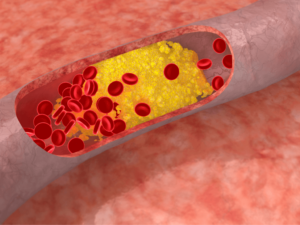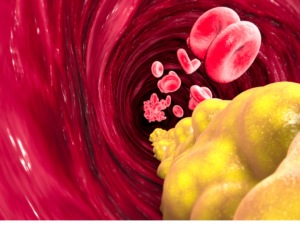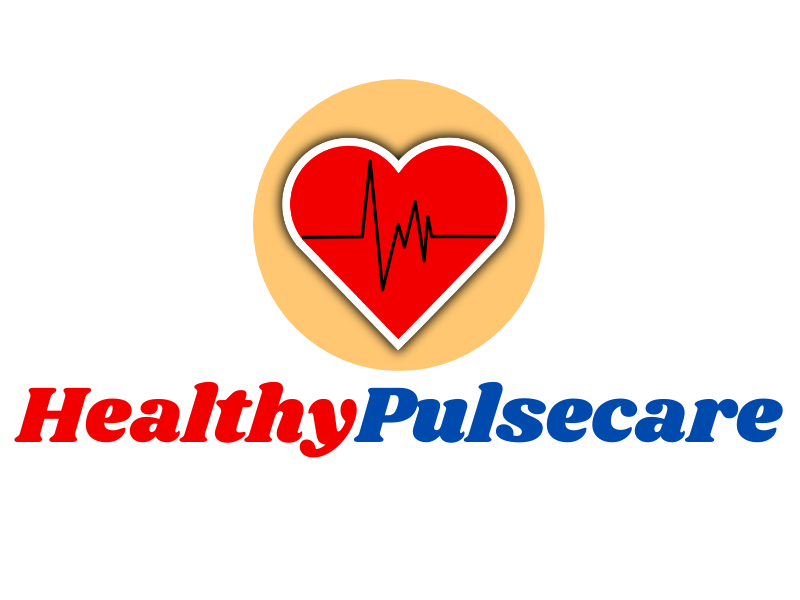Does High Cholesterol Cause Headaches?
High cholesterol and headaches, while seemingly unrelated, may share a deeper connection that impacts overall well-being. We’ll go into the details of Does High Cholesterol Cause Headaches? relationship between the two in this in-depth investigation. Anyone committed to live a healthier life as well as those dealing with similar diseases have to understand this relationship.
What is High Cholesterol

High cholesterol, a term often heard in discussions about heart health, refers to the presence of elevated levels of fatty substances in the blood. On the other hand, headaches, a prevalent ailment, can range from mild discomfort to debilitating pain. It raises the question of whether there is any real connection between these two that seemed unrelated health problems.
Defining High Cholesterol and Headaches
Before delving into the connection, let’s define our terms. Every cell in the body contains cholesterol, a waxy, fat-like substance that is essential to the production of hormones, vitamin D, and digestive fluids. On the other hand, too much cholesterol, especially low-density lipoprotein (LDL), can cause plaque to build up in arteries, obstructing blood flow and raising the risk of heart problems.
On the other hand, headaches are a frequent complaint that affects people of all ages. They may be caused by a number of things, such as stress, migraines, sleep deprivation, or underlying medical issues. Understanding these separate elements provides the way for discovering any possible connections between them.
Understanding What is High Cholesterol
Cholesterol and It’s Types
There are two primary forms of cholesterol: high-density lipoprotein (HDL) and low-density lipoprotein (LDL). While HDL is frequently referred to as “good” cholesterol since it aids in the removal of LDL from the bloodstream, too much LDL can cause plaque to build up in arteries, raising the risk of heart disease.
Healthy vs. Unhealthy Cholesterol Levels
Maintaining a balance between LDL and HDL cholesterol is crucial for cardiovascular health. Unhealthy lifestyle choices, such as a diet high in saturated and trans fats, lack of physical activity, and smoking, can contribute to elevated cholesterol levels.
The Impact of High Cholesterol on Health

Cardiovascular Diseases
The main issue with excessive cholesterol is that it can lead to cardiovascular illnesses. Plaque buildup in the arteries can result in atherosclerosis, which raises the risk of strokes and heart attacks.
Cholesterol and Blood Circulation
Understanding the link between cholesterol and blood circulation is integral to grasping its broader impact. Restricted blood flow due to narrowed arteries can lead to various health issues, with headaches potentially being one of the symptoms.
Effects on Overall Well-being
High cholesterol levels can have an impact on a person’s overall wellness as well as the cardiovascular system. The effects are not limited to the heart,, they also include fatigue and impaired cognitive function.
Headaches: Causes and Types
Common Causes of Headaches
Numerous factors, such as stress, sleep deprivation, dehydration, and underlying medical disorders, can result in headaches. For management to be effective, the exact reason must be identified.
Different Types of Headaches
It is possible to get insight into the unique qualities and triggers of several headache kinds, including tension headaches, migraines, and cluster headaches.
How Headaches Are Diagnosed
Diagnosing headaches involves considering medical history, conducting physical examinations, and sometimes, additional tests like imaging studies. This comprehensive approach helps in identifying the root cause and altering the method of treatment.
Still Thinking Does High Cholesterol Cause Headaches?
Let’s dive into deep study about Does High Cholesterol Cause Headaches?. Below you can find the studies about high cholesterol and headaches.
Studies and Findings
Research has looked into the possible connection between headaches and high cholesterol levels. Although the evidence is inconclusive, some study points to alterations in blood flow brought on by problems with cholesterol as a potential cause of headache symptoms.
Scientific Perspective on the Link
From a scientific standpoint, the intricate connection between cholesterol and headaches involves vascular changes that may influence blood flow to the brain. However, more research is needed to establish a definitive causative link.
Controversies and Debates
As with many health-related topics, there are controversies and debates surrounding the connection between high cholesterol and headaches. Some argue for a more direct link, while others emphasize the multifactorial nature of headaches.
Symptoms of High Cholesterol
Physical Symptoms
Recognizing physical symptoms associated with high cholesterol, such as chest pain, shortness of breath, and fatigue, is crucial for early intervention.
Internal Signs
Internal signs, like changes in cholesterol levels detected through blood tests, provide an a additional insights into potential health issues.
Identifying Cholesterol-Related Headache Symptoms
Pinpointing headache symptoms linked to high cholesterol involves recognizing patterns, frequency, and potential triggers. This awareness aids in determining whether there’s a substantial connection.
Lifestyle Factors
Diet and Nutrition
Adopting a heart-healthy diet rich in fruits, vegetables, whole grains, and lean proteins is integral to cholesterol management. And you can add some plant based multivitamins and minerals. Avoiding excessive saturated and trans fats contributes to overall well-being.
Physical Activity
Regular exercise not only helps maintain a healthy weight but also positively influences cholesterol levels and overall cardiovascular health.
Stress Management
Chronic stress can contribute to both high cholesterol and headaches. Incorporating stress management techniques, such as meditation and yoga, into daily life can be beneficial.
Prevention and Management
Dietary Changes for Cholesterol Control
Making informed dietary choices, including incorporating foods with cholesterol-lowering properties, is a proactive approach to managing cholesterol levels.
Medications and Treatment Options
In some cases, medications may be prescribed to lower cholesterol levels. Understanding the available options and their potential side effects is essential for informed decision-making.
Lifestyle Modifications for Headache Prevention
Beyond cholesterol management, lifestyle modifications, such as regular sleep patterns, hydration, and stress reduction, can contribute to headache prevention.
Conclusion
As we get to the end of this investigation into the complex relationship between high cholesterol and headaches, it is evident that, even though a direct causal association hasn’t been proven in every case, there are interesting correlations to take into consideration. The importance of adopting a complete strategy for health that incorporates regular check-ups, lifestyle modifications, and educated decision-making cannot be overstated.
In the search for optimum health, being aware of a possible connection between excessive cholesterol and headaches may aid in preventive therapy. It’s an appeal to give priority to a person’s health and adopt habits that enhance both physical and mental health in addition to controlling cholesterol.
Frequently Asked Questions (FAQs) – Does High Cholesterol Cause Headaches?
Q1: Is there a direct link between high cholesterol and headaches?
A1: While not universally established, some scientific studies suggest a potential connection between high cholesterol and headaches. Changes in blood flow due to cholesterol-related issues may influence headache symptoms.
Q2: What are the common causes of headaches?
A2: Headaches can result from various factors, including stress, lack of sleep, dehydration, and underlying health conditions. Identifying the specific cause is crucial for effective management.
Q3: How is high cholesterol diagnosed?
A3: Diagnosis involves blood tests to measure cholesterol levels. Elevated LDL (low-density lipoprotein) levels may indicate high cholesterol.
Q6: What are the treatment options for high cholesterol?
A6: Treatment may involve dietary changes, medications, or a combination. Statins and lifestyle modifications are common approaches to lower cholesterol levels.
Q7: Are there natural ways to manage cholesterol?
A7: Yes, adopting a heart-healthy diet rich in fruits, vegetables, and whole grains, along with regular exercise, can contribute to cholesterol management.
Q8: Can stress contribute to high cholesterol and headaches?
A8: Chronic stress is associated with both high cholesterol and headaches. Incorporating stress management techniques, such as meditation and yoga, can be beneficial.
Remember, it’s essential to consult with a healthcare professional for personalized advice and treatment options tailored to your specific health needs.




